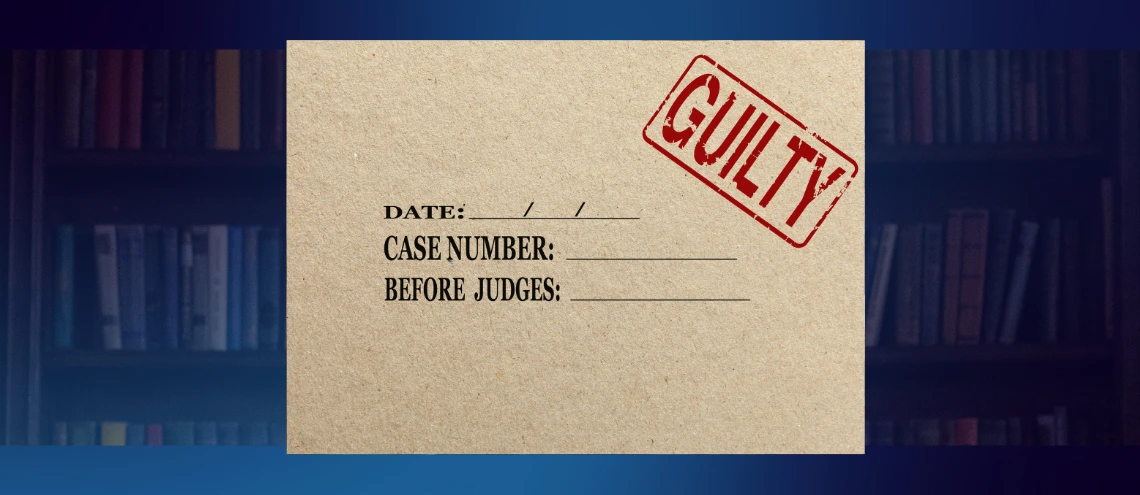
What Happens If I Plead Guilty?
When you’re charged with a crime, the decision to plead guilty can feel like a way to “get it over with.” But before entering a plea, it’s critical to understand what that choice really means. A guilty plea isn’t just admitting to the offense – it’s a permanent legal conviction that can affect almost every part of your life.
At Blizzard & Zimmerman Attorneys, our criminal defense lawyers and paralegals help clients across the region weigh the consequences and explore every possible option before making this life-changing decision.
Below, we explain what can happen if you plead guilty, and how those effects can reach far beyond the courtroom.
1. Employment Consequences
A criminal conviction becomes part of your permanent record. Employers often run background checks, and a conviction can limit your ability to get hired, keep your job, or earn promotions.
- Job applications may require you to disclose convictions.
- Professional reputations can be damaged, especially in fields like education, healthcare, law enforcement, or finance.
- Loss of professional licensing may occur (see below).
Even misdemeanors can have long-term career implications, especially if the offense involves dishonesty, theft, or violence.
2. Immigration Status
If you’re not a U.S. citizen, pleading guilty can trigger immigration consequences, even for minor offenses.
Certain convictions can lead to deportation, denial of naturalization, or visa revocation. Immigration courts treat “crimes of moral turpitude” and “aggravated felonies” very seriously.
Always consult both a criminal defense attorney and an immigration lawyer before making any plea decisions.
3. Military Service and Eligibility
The U.S. military holds high moral and legal standards.
A guilty plea can disqualify you from enlisting or result in discharge from active duty. Convictions for drug offenses, domestic violence, or felonies often mean you’re barred from re-enlistment or promotion.
If you’re currently serving or hope to serve, talk to your attorney about these risks before entering a plea.
4. Student Loans and Education
While most convictions don’t cancel existing federal student loans, certain offenses can affect your eligibility:
- Drug convictions may temporarily suspend your access to federal financial aid.
- Some schools may deny admission or campus housing based on criminal history.
- A conviction may prevent you from pursuing professional programs like nursing, teaching, or law.
5. Voting Rights
In Texas, a felony conviction results in the temporary loss of your right to vote until you complete your sentence, parole, or probation. Once your sentence is fully discharged, your voting rights can be restored – but you must re-register to vote.
6. Driving Privileges
Depending on the offense, pleading guilty may lead to:
- License suspension or revocation (especially for DWI or drug offenses).
- Fines, surcharges, or reinstatement fees.
- Higher insurance premiums or loss of coverage.
These penalties can make transportation and employment even more difficult.
7. Professional Licensing
Doctors, nurses, teachers, real estate agents, accountants, and other licensed professionals face unique challenges after pleading guilty.
- Licensing boards may revoke or suspend licenses, or refuse to renew them.
- You may need to report your conviction to your licensing authority.
- Even deferred adjudication can sometimes trigger a disciplinary review.
Your attorney should evaluate how your profession could be affected before any plea.
8. Housing and Public Benefits
A criminal conviction can make it harder to find or keep housing.
- Landlords can deny applications based on criminal background checks.
- Public housing programs may exclude those with certain offenses.
- Some public benefits, such as SNAP or TANF, can be restricted for drug-related convictions.
9. Other Hidden Consequences
A guilty plea can affect:
- Firearm ownership rights (especially for felonies or domestic violence).
- Child custody and family court cases, where a conviction may influence parenting determinations.
- Reputation and social stigma, especially in small communities or professional circles.
Why You Should Never Plead Guilty Without Legal Advice
Once you plead guilty, it is extremely difficult – often impossible – to undo. You may lose the right to appeal, challenge evidence, or negotiate better terms.
An experienced criminal defense lawyer can help you:
Review the evidence and explore possible defenses.
Negotiate for reduced charges, probation, or deferred adjudication.
Identify long-term consequences before they become permanent.
Protect Your Future Before You Decide
At Blizzard & Zimmerman Attorneys, our crimnal defense attorneys understand that every case – and every client – is unique. We take the time to explain your options and the real-world impact of each decision so you can move forward with clarity and confidence.
Don’t make a life-altering choice alone.**
Call (325) 230-2751 to schedule a confidential free case review today.

